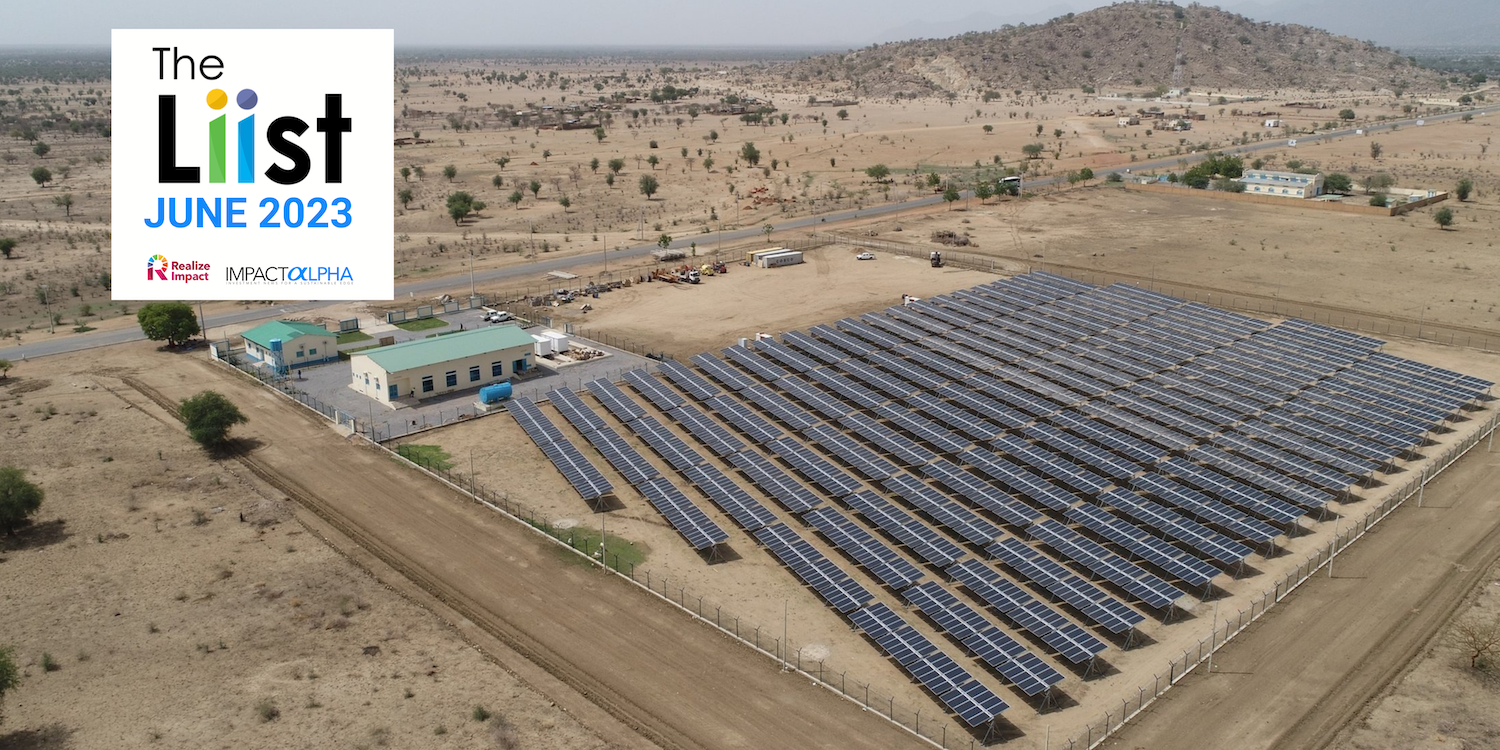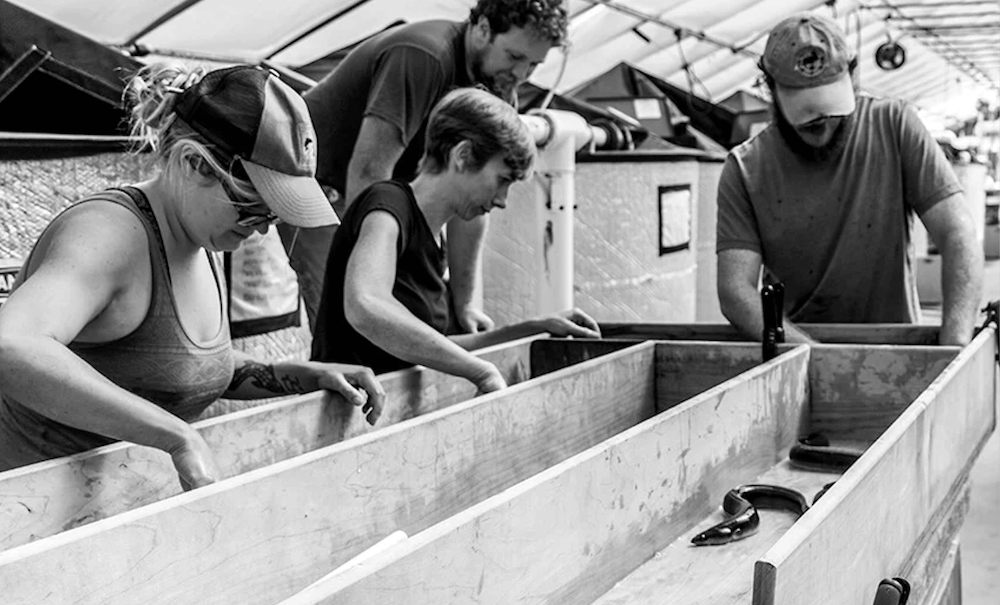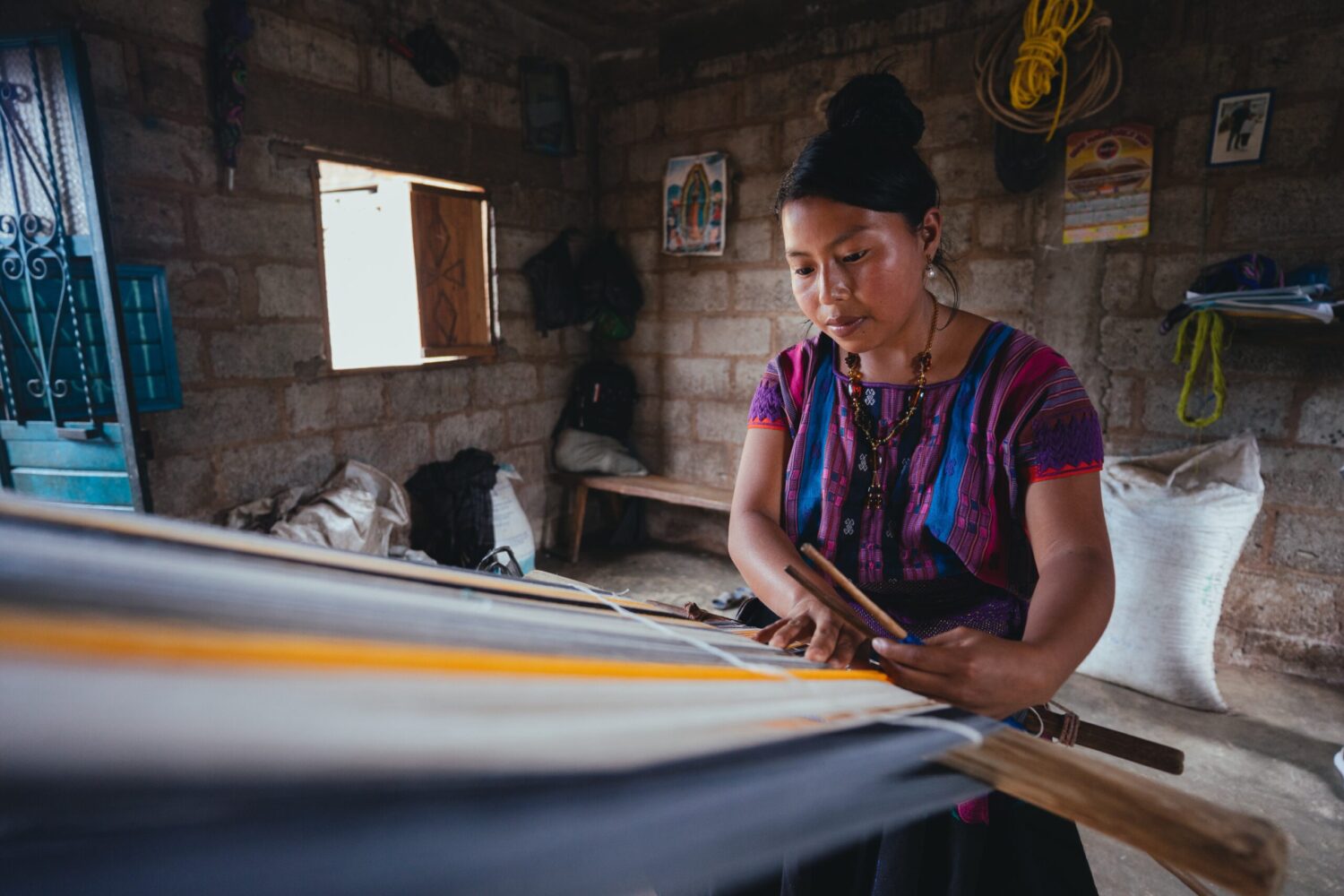ImpactAlpha, June 6 – Energy Peace Partners and impact fund manager Cameo are out to prove that even in conflict zones there are investable opportunities in basic services. But they can’t test their hunch with commercial capital—such financing doesn’t exist for the renewable energy projects the partners are supporting in places like Sudan, Somalia and the Democratic Republic of the Congo. So they got creative with an energy credit mechanism that will allow project developers to get funding upfront for energy they produce in the future. Their goal: to use $10 million in grants and heavily concessional capital to catalyze $90 million in new renewable energy investment in vulnerable parts of Africa.
The pilot fund is one of several catalytic capital vehicles on this month’s Liist of actively raising impact funds (check out dozens of funds featured on earlier lists).
Funds are the biggest drivers of the roughly $9 billion in annual blended finance deals. The volume of such capital, which uses different types and sources of financing to de-risk and incentivize private investment, is far below what’s needed to achieve the Sustainable Development Goals and global climate agenda. But it is catalytic, leveraging $4 of commercial financing for every $1 of concessional capital.
Energy Peace Partners and Cameo’s $10 million pilot fund is one of several catalytic capital vehicles on this month’s Liist of actively raising impact funds. In Brazil, Jive Investments and Maua Capital—both fairly new to impact investing—are using a mix of commercial and concessional funding to help Brazilian farmers regenerate land and protect native species in the biodiverse Cerrado region.
Also, Lendable is in the market with its second fund to invest in emerging market fintech ventures that are driving financial inclusion. The fund’s structure includes four tranches to encourage a mix of investors to back its approach, which will use impact incentives to get fintechs to strengthen their commitments to women.
A group of community investors led by Next Street is raising a revenue-based financing fund for diverse-owned small businesses in underserved communities. The five partners are contributing first-loss capital and are planning to secure a 10% guarantee to further cushion investors.
Also on this month’s Liist: Netherlands-based 4impact invests in impact-focused software ventures in Northern Europe, and Nithio, which lends to local businesses in Africa that are supporting the clean energy transition. Overlay Capital in Atlanta, Georgia is in the market with its $70 million Innovation Fund, which invests in environmentally-focused fund managers and early-stage startups.
Know an impact fund manager currently raising capital? Drop us an email or complete this short form.
(Disclaimer: The Liist and this post are based on available information, sourced by ImpactAlpha. Information has not been further reviewed by the managers nor verified by third parties, is not guaranteed for accuracy or completeness, and should not be relied upon as investment advice or recommendations. Nothing in The Liist, this post or on ImpactAlpha.com shall constitute an offer to sell or the solicitation of an offer to buy securities.)
4impact
Ali Najafbagy and Pauline Wink, former colleagues at Goldman Sachs, launched 4impact in 2019 to invest in early-stage, impact-driven software companies. The Netherlands-based firm’s portfolio includes climate fintech startup Carbon Equity and Envision, an AI-based voice guidance app for the visually-impaired. With its second fund, 4impact is looking to raise €100 million to invest beyond the Netherlands into Belgium, Luxembourg, Germany and the Nordics. The firm has secured early commitments from Invest-NL and Oost NL as well as family offices and individuals.
- Impact tech. 4impact will make investments of up to €2.5 million in seed to Series A rounds. The fund has invested in Carbonfuture, which provides digital monitoring, reporting and verification for carbon credits. Get in touch via email.
Jive Investments and Maua Capital
Latin America is emerging as a test bed for new natural capital and land investment strategies. Sao Paulo-based Jive Investments and Maua Capital are raising 450 million reais ($89 million) for a blended-finance fund to restore more than two million acres of degraded land in Brazil’s Cerrado region, one of the most biodiverse regions in the world. The fund will be used to scale up the Reverte Program, a farmer financing and training initiative that was started in 2021 by The Nature Conservancy and agrichemicals giant Syngenta. The program has restored more than 150,000 hectares of land.
- Financing farmers. Cerrado has lost nearly half of its native vegetation because of beef, soy and other agricultural commodity production. Reverte provides long-term, low-cost financing and technical assistance to the region’s farmers to encourage a shift to regenerative growing practices and preserve native species. “It is a program that demonstrates that it is possible to achieve sustainability with scale generating benefits to the whole chain,” Jive and Maua say. The teams, which merged last year, have secured two-thirds of its target from a large Brazilian bank, which is anchoring the fund. The managers are raising concessional capital for the remainder of the fund.
- Manager experience. The merger between Jive and Maua created an asset manager with 17 billion reais ($3.4 billion) under management. It’s not an obvious impact investing duo: Jives focuses on distressed assets while Maua focuses on real assets. Jive, however, developed its impact management policies three years ago on a small business distressed credit fund, in partnership with the International Finance Corp. Maua is a signatory of the Principles for Responsible Investment, the Task Force on Climate-Related Financial Disclosures, and other climate and impact-focused frameworks. Contact Rafael Kobbi for more information.
Lendable
Lendable launched in 2014 to spur digital financial inclusion by lending to emerging market fintech companies. The company has deployed more than $350 million to 23 ventures in 14 countries, including Fin in South Africa, Khazna in Egypt and Amartha in Indonesia. It estimates that there are now more than 7,000 fintech companies in emerging markets that “are creating fundamentally new business models that offer tailored products to un- and under-banked MSMEs and consumers.” Lendable is raising a $250 million blended-finance to ramp up investments in fintech companies catering to small businesses and providing essential services in Africa, India, Southeast Asia and Latin America.
- Gender incentives. Lendable’s second fund is more actively gender-focused and “will work with its borrowers to make them gender smart,” the company says. The firm will offer an interest rate reduction to borrowers who meet the 2X Challenge criteria for gender representation at their companies. “This mechanism will be offered to both companies early in their gender journey to incentivize change, as well as reward and further encourage those that are already 2X compliant to go further,” Lendable says.
- Blended finance. Lendable is looking to write $5 million to $25 million loans to mid- to late-stage fintech ventures. Investors can participate in four tranches to the blended-finance fund: senior debt, Class A shares, catalytic junior debt and first-loss capital. Contact Noëmie Rosala for more information.
NXST Revenue-Based Financing Fund
Five organizations are partnering on a $15 million revenue-based loan fund that will invest in small businesses run by people of color in underserved communities. Next Street, Allies for Community Business, AltCap, Lendistry and Virginia Community Capital will invest cut checks of up to $350,000 in 100 small businesses in California, New York, Texas, Virginia, Illinois and the Appalachia. The NXST Revenue-Based Financing Fund has secured $3 million in commitments. The partners are jointly contributing to a first-loss layer. They’re also looking to secure a 10% guarantee for added risk protection to investors and raise philanthropic capital to provide technical assistance to investees.
- Barrier busting. The partners are using revenue-based financing rather than traditional equity or debt to “align with the interests and ability to pay of the business owner.” The design of the fund, which uses alternative underwriting models, is meant to address “systemic barriers to capital access for small businesses.” Eligible businesses must have been generating revenue for at least 12 months. Contact Alexandra Tesser for more information.
Nithio
Nithio supports the clean energy transition in Africa by financing local solar, electric mobility and microfinance companies. The women-led investment firm is looking to raise $150 million in blended finance to make debt investments of $500,000 to $5 million for working capital and inventory and asset financing. Nithio says it is addressing a funding gap for “regional and local companies in Africa, which have a better view of the local, cultural context but are not at scale for direct investments from large development finance institutions.” The firm has made 15 investments using its alternative data and AI-based underwriting system. Its portfolio includes Nigeria’s Winock Solar, a solar product and system distributor.
- Open-ended fund. Nithio’s fund is set up as a Netherlands-based, open-ended vehicle. It has raised $30 million from FSD Africa Investments, EDFI-ElectriFI, Shell Foundation, the US International Development Finance Corp. and the Schmidt Family Foundation. Contact Roeland Menger for more information.
Overlay Capital
Overlay Capital has its eye on environmentally-focused fund managers like Lowercarbon Capital, At One Ventures and Muus Climate Partners. The Atlanta, Georgia-based investment firm is in the market with a $50 million to $70 million fund, Overlay Capital Innovation Fund, to invest up to $4 million in such funds, as well as impact ventures up to the Series B stage. The fund will track environmental impact metrics including carbon emissions reduction, fossil fuel replacement rates, water and energy efficiency. Overlay reached a $15 million first close for the US-domiciled fund, backed by family offices and high-net-worth investors.
- Diversity focus. Overlay is also tracking the founder and general partner diversity of its portfolio, which is currently 42% women-led and 36% diverse-led. The 10-year fund is unique in that it only charges a 1.25% management fee (compared to the average 2%). The firm says it’s able to offer a lower rate by “leveraging low- and zero-fee direct investments.” Contact Ashok Reddy for more information.
Energy Peace Partners and Cameo
Energy Peace Partners is teaming up with London-based impact fund manager Cameo to facilitate renewable energy project development in conflict-prone parts of Africa. The partners are looking to raise $10.3 million in grants and concessional capital – as well as $500,000 in grants for project preparation – to serve as first-loss, catalytic capital for getting new renewable energy developments off the ground. They’re hoping to spur $90 million in additional investment.
- Upfront finance. The key barrier preventing renewable energy development in conflict areas is lack of available capital to build. Energy Peace Partners has been working to address this by building on the $1 billion Energy Attribute Certificate market. The certificates, or EACs, are a tradeable commodity representing 1 megawatt hour of clean energy delivered that give renewable energy developers an additional income source while allowing governments, companies, utilities and other buyers to meet sustainability goals. Energy Peace Partners designed Peace Renewable Energy Credits, or P-RECS, to help developers in vulnerable communities secure capital they need upfront by monetizing future energy generation.
- Pilot fund. Capital raised for the P-REC Aggregation Facility will provide developers with 10% of their upfront project financing needs, in exchange for ownership of the P-RECs generated. The partners hope to support 57 megawatts of new renewable energy development and hope to prove that “renewable energy projects in fragile contexts remain both technically and financially viable over a sustained period.” Contact Katie Retz for more information.











